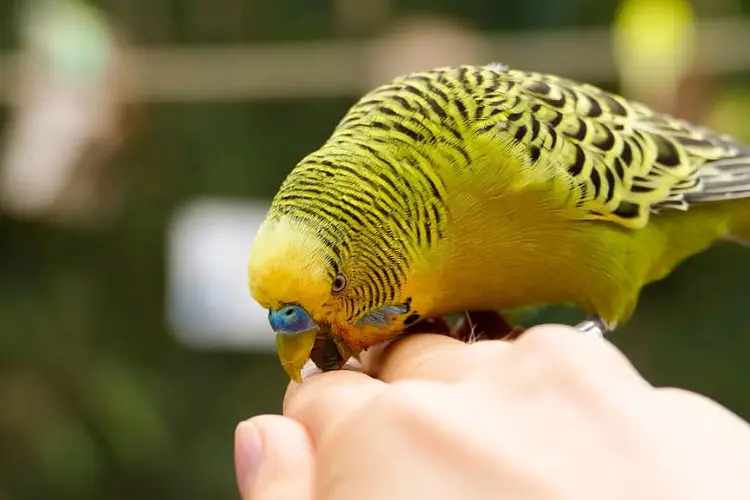Budgies, also called parakeets, are prey animals who, when in the wild, protect themselves using their beaks. They are not aggressive birds by nature though they can bite if agitated. The biting often happens as a signal from the pet, and the bird owners should investigate and sort it out.
So, do budgies bite? Does it hurt? Yes, budgies can bite you for several reasons, and the common one is protecting their territory. Though their beaks are reasonably small, aggressive bites can hurt tender hands. Approaching the birds calmly and familiarizing yourself with them can help minimize biting.
In this article, bird bites and their causes are discussed, as well as their reasons. Read more to know what you can do to minimize and stop the biting.
Do Pet Budgies Bite?
Pet budgies can bite, and often this bad behavior has a motive that you should analyze and resolve. Bird bites often happen when humans fail to understand other signals they use. Like other bird pets, happy budgies use their beak for activities, including playing and preening.
When in danger, birds use their beaks as their weapons to fight prey and defend their personal space. Sometimes your budgie may also use their claws in defense, especially when they feel attacked. You must be very careful because their claws can hurt more than a bite.
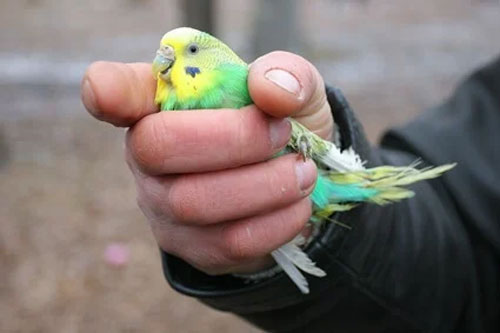
Budgie bites are barely lethal, and only a few scratches are sustained from a biting encounter. However, babies and children whose body parts are softer than adults can attain more serious injuries from a budgie bite. According to NSW Health, severe bird bites and scratches can expose a person to a bacterial called Chlamydia psittaci.
Reasons Why Budgies Would Bite?
To prevent and remedy the budgies’ biting behavior, you should first understand their motive. Though they occasionally eat insects in the wild for proteins, it’s unlikely that this is the reason they bite. Below are the common reasons budgies would bite.
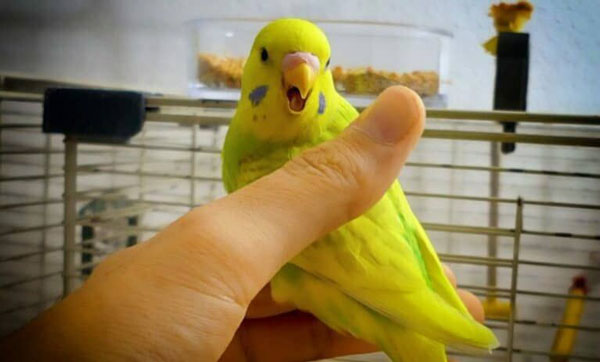
- Signal – Since budgies are calm naturally, it is unusual for them to use biting as a first signal. However, if agitation signals like eye preening, chirping, and retreating doesn’t stop you, budgies will be compelled to bite.
- Playing – It’s normal for budgies to perch on your hands and peck on them. Sometimes bird bites will be their way of asking for your attention.
- Territorial – Budgies will sometimes bite you to protect their space. Female budgies during the breeding seasons are often territorial and might bite you.
- Mood – Like humans, budgies will sometimes have a foul mood, and petting them can make them bite you.
- Hate – Budgies remember your nature, and if you have ever been aggressive to them, their natural response will be defensive and bite you.
- Ailing – If the budgie pet is sick, it will likely bite you if you try to pet it.
Treating your budgie well from the onset determines how well your relationship grows. If you’ve shown them hostility before, they will never forget. Researchers say these birds have a sharp memory. They are likely to retain them for a lifetime.
Also read: Overweight Budgie
How To Avoid Getting Bitten by Budgie?
Since budgies will only bite for a reason, avoid the obvious ones to keep them happy. Happy budgies will interact with their owners safely without biting or scratching them. Below are several things that can reduce the possibility of your budgies biting you.
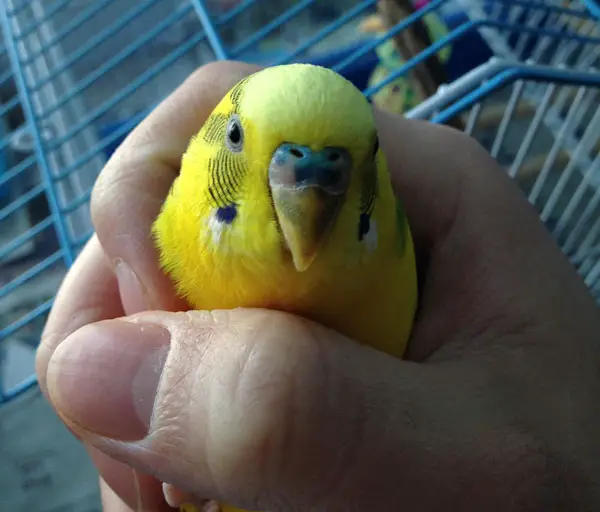
- Don’t force the pets to play if they don’t want to or wake them from sleep to pet them. This act can make them agitated and bite you.
- Familiarize more with the pets so they can know you better. If the pets don’t see you more, they will bite you as they would other strangers.
- Feed the pets adequate food and favorite treats. Hungry pets will often bite your fingers in search of more finger treats or as a sign of hunger.
- Regularly add new toys so they won’t get bored with the old ones. Birds with a variety of toys will be engaged most of the time.
- Add another pet to keep the company of your budgie. A lonely budgie can be stressful and dislike interacting with you, which adding a new pet can fix.
- Provide a mate for your pet during the breeding season. Budgies during the mating season are more likely to be aggressive creatures, and providing a mating partner can help cool them off.
FAQ
Budgies are calm birds who sometimes develop a biting behavior that contradicts their character. This behavior will sometimes awe budgie owners, leaving them with many questions. Below are frequent questions and answers on this topic that will satisfy most of your doubts.
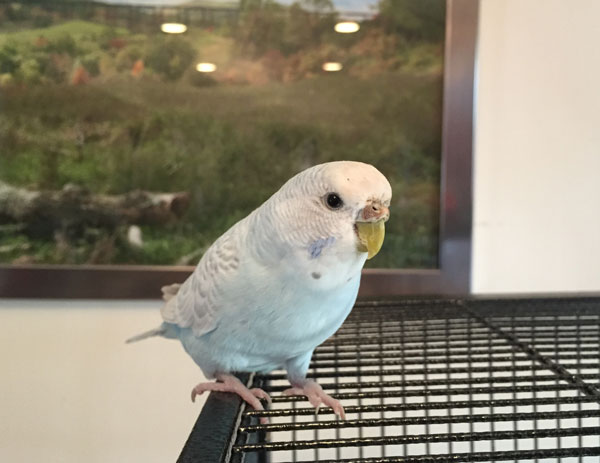
Budgies notably interact with human hands and fingers, where they mostly perch and sometimes eat treats. However, biting is unusual, and an investigation should be done to determine the motive. Budgies will sometimes bite as a sign of affection or while demanding attention.
Since budgie bites are mild, the probability of them causing disease is low. However, if the person bitten has an exposed wound, a bacteria called chlamydia psittaci can infect them. These bacteria foster a disease called Psittacosis, which can cause lung infections and other mild ailments.
Budgies are naturally playful and can peck or poke when happy. They can also bite slightly, especially when not in the mood to dance to your tune. You can tell a happy bite from a defensive one depending on the force they use. If they bite hard continuously, it’s good to leave them alone for some time.
Related: Budgie Head Bobbing Up and Down
Conclusion
Budgies can bite for many reasons, and the most frequent one is self-defense. Some of the reasons are parallel to the birds’ emotions, while others are spurred by human actions. Some bites will hurt, while others won’t. Thankfully, the chances of getting an infection are low regardless of how hard they may bite.
Understanding your pet bird’s body language and signals is a positive step to averting the biting behavior. Also, familiarizing yourself with the budgie can help reduce the hostility since the birds will be friendlier to you. However, in most cases, bird bites are like love bites, which are a sign of affection to their owner. Yours is to understand your pet so you know what they are communicating.
